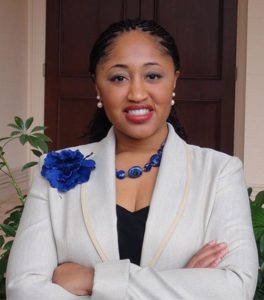 Community Matters is a biweekly opinion column. The views expressed are solely the author’s.
Community Matters is a biweekly opinion column. The views expressed are solely the author’s.
I was recently asked for my thoughts on influence. I have always been intrigued by influence – how it works, what makes some more influential than others and exactly how one can consistently influence others for greater impact.
When I think about the people and institutions in Arlington who have the potential for the most impact, in addition to elected officials, business leaders, etc., our organizational and civic leaders at all levels top the list. As we push for Arlington to evolve, I think it is critical that each of us truly understand influence.
It seems easy enough, we all influence our children, our partners and our colleagues in different ways. Sometimes it’s through commands, other times it’s through flattery, but most of us have been able to influence others in our lives.
I am often asked for recommendations on recruiting more minorities to organizations or initiatives, in particular. I have written about other advice and thoughts about authenticity, expanding your network, and simply asking – which are all essential.
When I am considering a new endeavor, something has to stand out about the ask and the work that I am being asked to do. As you consider recruiting people who are different from the majority of your current membership, consider using authentic influence. While there are a lot of people who likely fit your criteria, there are a limited number you have access to (until you ramp up your outreach). In my conversations I have noticed that many of the people who fit the commonly sought after criteria, are in high demand and recruited by several organizations at once.
Yet, there are differentiators for the people and organizations who are able to attract this talent, and I believe some of that lies in their ability to influence. We must remember that there are often concerns about trust, and leeriness that the person will be used as a token. Additionally, as with most of us, there are concerns about a limited ability to commit the time needed.
Empowerment. I have written before about providing training and preparation for those who you might want to recruit, but may not possess everything you need for the role. Whether you offer community training with the goal of recruiting, additional leadership/members, or specifically target the people you want to recruit, generally empowering them (without pandering) may be beneficial. Make a connection between the role you would like them to serve in and the work they do now. Have conversations with them and encourage them to see where they are now and where they could be by serving in that role.
Individualization. This may seem like it goes without saying, but be clear about why you want this person to serve in a role, and not just “any woman” or any “Asian American,” etc. Those of us who have been on the other end of recruiting efforts can generally tell when the person or organization knows little about what we can bring to the table.
Connect with their emotions. Within reason, I would consider really connecting with people. With so much going on in everyone’s lives, someone who takes the time to find out what is happening in my life and how I am feeling, would probably resonate more with me. I believe that those personal connections are what keep us coming back to the roles we currently have.
It can be easy to think about the new policies we are implementing in Arlington on a systemic level, but we can’t forget each other’s humanity. As we move forward with true community change, we should remember the power of authentic personal influence.
Krysta Jones has lived in Arlington since 2004 and is active in local politics and civic life. This column is in no way associated with or represents any person, government, organization or body — except Krysta herself.

